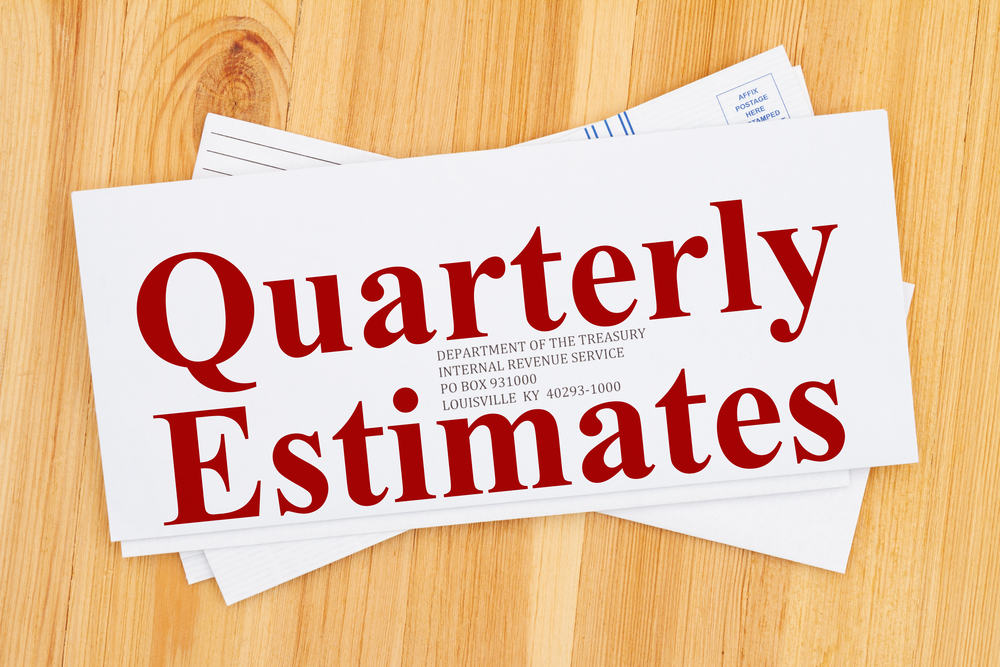What You Should Know about Quarterly Estimated Tax Payments
Peacock & French CPAs
Jul 01, 2024

As a business owner or freelancer, understanding and managing your tax obligations is crucial for maintaining financial health and avoiding penalties. Because most freelancers and businesses aren’t taxed upfront, one critical aspect of tax compliance is making quarterly estimated tax payments. Here is an in-depth look at what quarterly estimated tax payments are, who needs to make them, how to calculate them, and the consequences of failing to comply.
Understanding Quarterly Estimated Tax Payments
Quarterly estimated tax payments are periodic payments made to the IRS throughout the year on income that is not subject to withholding. This includes income from self-employment, interest, dividends, alimony, rent, gains from the sale of assets, prizes, and awards. The U.S. tax system operates on a "pay-as-you-go" basis, meaning taxes should be paid as income is earned or received.
Who Needs to Make Quarterly Estimated Tax Payments?
If you are self-employed, a freelancer, or a small business owner, you are likely required to make quarterly estimated tax payments. This includes income earned from:
- Freelance work
- Consulting
- Contract work
- Business profits
Individuals receiving income from sources such as rental properties, investments, or alimony may also need to make estimated tax payments if the income is not subject to withholding.
Threshold Requirements
Generally, you need to make estimated tax payments if you expect to owe at least $1,000 in tax for the year after subtracting withholding and refundable credits, and if your withholding and refundable credits are less than the smaller of:
- 90% of the tax to be shown on your current year's tax return, or
- 100% of the tax shown on your previous year's tax return (110% if your adjusted gross income was more than $150,000).
Calculating Your Estimated Tax Payments
Proper calculations are important to ensure you’re paying the correct amount every quarter. While you won’t be penalized for minor miscalculations, drastically underpaying can still result in fees and penalties. Here’s how to calculate your quarterly payments:
- Estimate Your Income: Begin by estimating your expected adjusted gross income (AGI), taxable income, taxes, deductions, and credits for the year. This process can be complex, especially if your income varies significantly throughout the year.
- Use IRS Form 1040-ES: The IRS provides Form 1040-ES, Estimated Tax for Individuals, which includes a worksheet to help calculate your estimated tax. This form considers your expected AGI, deductions, credits, and tax.
- Calculate the Payment: Divide the estimated annual tax by four to determine your quarterly payment amount. Remember to adjust if your income fluctuates throughout the year, and recalculate as necessary.
- Consider State Taxes: Don’t forget about state estimated taxes, which may also be required. Each state has its own rules and forms, so check with your state's tax authority for specific requirements.
Making Your Payments
Quarterly estimated tax payments are typically due on the following dates:
- April 15 for income earned January 1 – March 31
- June 15 for income earned April 1 – May 31
- September 15 for income earned June 1 – August 31
- January 15 of the following year for income earned September 1 – December 31
If any due date falls on a weekend or legal holiday, the payment is due the next business day. You can make your payments using various methods:
- Electronic Federal Tax Payment System (EFTPS): This is the IRS’s preferred method for making payments.
- Direct Pay: Use your checking or savings account to pay directly from the IRS website.
- Credit or Debit Card: Payments can be made through a payment processor for a fee.
- Check or Money Order: Mail your payment along with a completed payment voucher from Form 1040-ES.
Consequences of Not Making Quarterly Payments
Failure to make the required estimated tax payments can result in penalties and interest charges. The IRS imposes an underpayment penalty if you do not pay enough tax throughout the year. The penalty is calculated based on the amount of underpayment, the period of underpayment, and the interest rate determined by the IRS.
Additionally, if you fail to make estimated payments, you may face a significant tax bill when you file your annual return. This can be financially straining and might result in additional penalties for late payment or underpayment.
Strategies for Managing Quarterly Tax Payments
Regularly review your income and expenses to ensure your estimated payments are accurate. Adjust your payments as necessary if your financial situation changes. Consider setting aside a portion of your income throughout the year specifically for tax payments. This can help you avoid the strain of making large lump-sum payments.
Seeking Professional Assistance
Consulting with a CPA or tax professional can provide valuable guidance. We can help you accurately estimate your tax liability, adjust your payments, and ensure compliance with IRS requirements. Contact Peacock & French CPAs today to schedule a consultation with one of our experienced tax professionals. We can assist you in calculating quarterly payments and submitting them to the IRS on time.